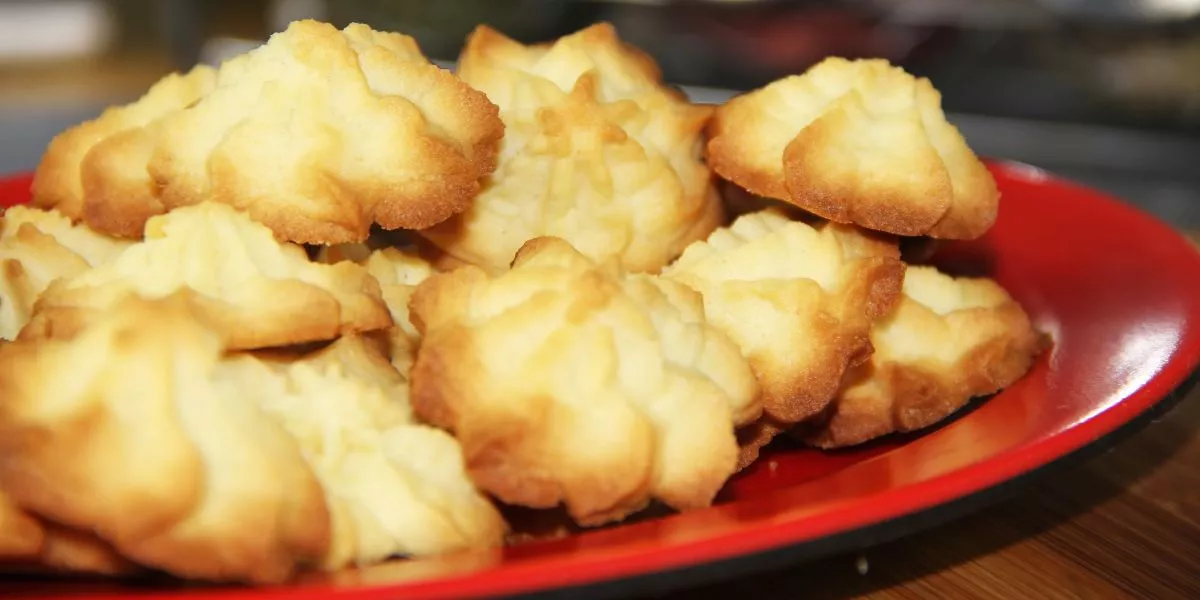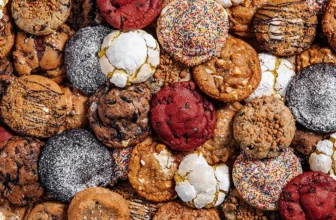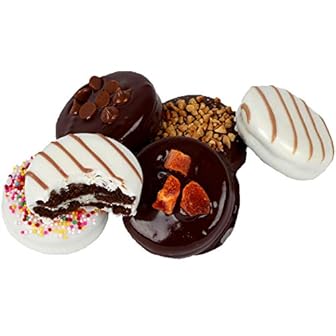
When you eagerly pull a batch of cookies out of the oven, hoping for a soft and chewy treat, only to find them disappointingly hard, it can be frustrating. Understanding the reasons behind this common baking mishap and learning how to prevent it is crucial for achieving that perfect cookie texture. By exploring the impact of ingredients, baking techniques, and simple tips to ensure your cookies turn out soft and delicious, you’ll be equipped to elevate your baking game and create irresistible treats that everyone will love.
Common Reasons for Hard Cookies
When overbaking, the cookies lose moisture and become hard. It’s crucial to follow the recommended baking time to ensure your cookies come out soft and chewy. Another common reason for hard cookies is using too much flour. When you add extra flour to the dough, it absorbs more liquid, resulting in a drier and tougher texture. Be precise when measuring ingredients to avoid this issue.
Additionally, the type of fat you use can impact the texture of your cookies. Butter tends to produce softer cookies, while shortening or margarine can make them firmer. Pay attention to the fat content in your recipe and choose accordingly. Moreover, if you overmix the cookie dough, you develop more gluten, which can lead to a tougher outcome. Mix the ingredients until just combined to prevent this from happening. Or just order some rather than see how the cookies turn out.
To prevent hard cookies, make sure to store them properly. Improper storage can cause cookies to lose moisture and become stale. Keep your cookies in an airtight container or resealable bag to maintain their softness.
Ingredients Impacting Cookie Texture
To achieve the desired texture in your cookies, pay attention to the specific ingredients you use as they play a significant role in determining whether your cookies turn out soft or hard. The type and amount of flour you use can greatly impact the texture of your cookies. For softer cookies, consider using cake flour or a combination of cake and all-purpose flour to keep them tender. On the other hand, using only all-purpose flour or bread flour can result in a firmer, chewier texture. Cookies turn out great!
Another key ingredient affecting cookie texture is the fat used. Butter tends to produce cookies that are softer and more tender due to its lower melting point compared to shortening. If you prefer softer cookies, opt for butter in your recipe. Additionally, the ratio of sugar to flour can influence the final texture. A higher sugar content results in cookies that are softer and chewier, while a lower sugar content can lead to a crisper, firmer texture. Experiment with these ingredients to find the perfect balance for your ideal cookie texture.
Baking Techniques for Soft Cookies
For soft cookies to turn out right, ensure you cream the butter and sugar thoroughly before adding the dry ingredients. Creaming incorporates air into the mixture, resulting in a lighter texture. Use room temperature butter, as it blends more easily with sugar, creating a smoother consistency. Additionally, avoid overmixing the cookie dough once the dry ingredients are added. Overmixing can develop gluten in the flour, leading cookies turn out tough. Instead, mix until just combined to maintain a tender texture.
Another baking technique for soft cookies is to refrigerate the dough before baking. Chilling the dough allows the fats to solidify, preventing the cookies from spreading too much in the oven. This results in thicker, softer cookies. Furthermore, consider using a light-colored baking sheet to prevent excessive browning on the bottom of the cookies. Dark pans absorb more heat, potentially overcooking the cookies. By implementing these baking techniques, you can achieve deliciously soft and chewy cookies every time.
Tips for Preventing Hard Cookies
Using the correct flour-to-butter ratio is essential to prevent cookies from turning out hard. When making your cookie dough, ensure that you’re measuring the flour accurately. Too much flour can result in a dry and tough texture, so lightly spoon the flour into your measuring cup and level it off with a knife. Additionally, using the right type of flour can make a difference. All-purpose flour is typically best for cookies, as it strikes a good balance between protein and gluten content.
Another tip to prevent hard cookies is to not overmix the dough. When you overmix, you develop the gluten in the flour, which can lead to a tougher cookie. Mix the ingredients until just combined to avoid this issue. Moreover, be mindful of the baking time and temperature. Overbaking cookies can quickly turn them hard and crunchy. Keep a close eye on your cookies in the oven and remove them promptly once they’re set around the edges but still slightly soft in the middle so your cookies turn out fantastic. By following these tips, you can enjoy soft and chewy cookies turn out every time.






